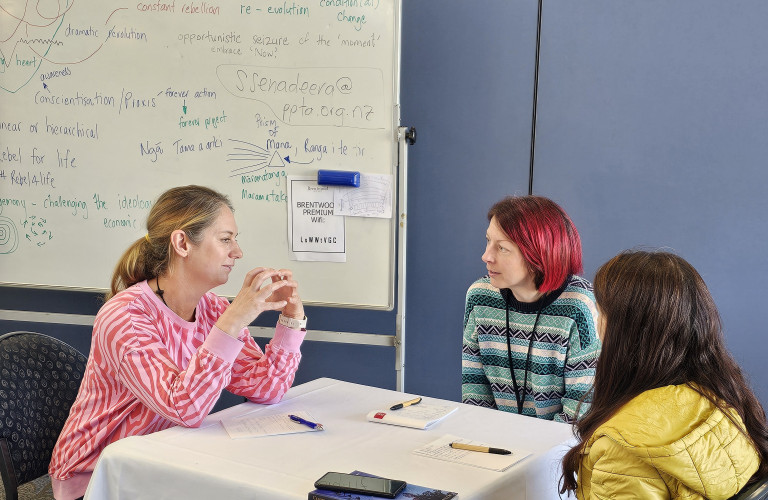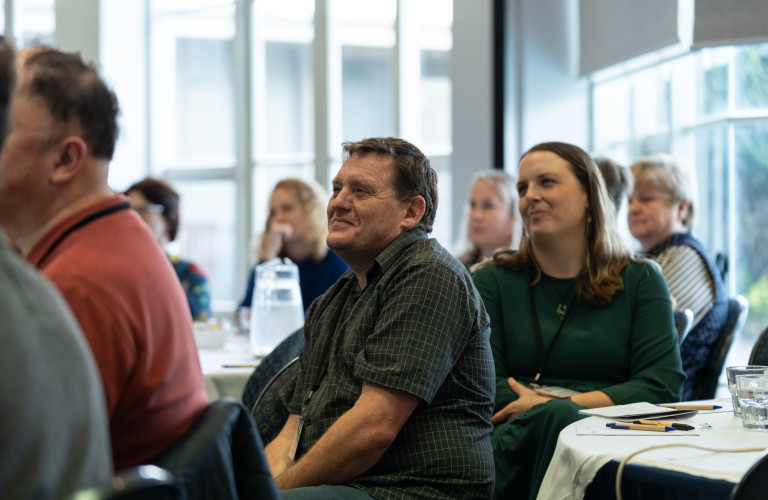Charter Schools - Standing for Public Education
With the election of a National, ACT and NZ First government we are facing the return of Charter Schools to Aotearoa New Zealand.
Our policy of the wholesale rejection of Charter Schools remains in place and will be discussed in upcoming Paid Union Meetings. Find out more here, and feel free to get in touch with us if you have any questions or feedback.
PPTA submissions on the Education and Training Amendment Bill
Branch Resolution Against Charter School Conversion
Branches that have signed the Resolution
‘PPTA Te Wehengarua supports a fully funded public education system’ says President Chris Abercrombie
We have a large variety of schools already in the New Zealand system which, compared to other countries, is already highly devolved.
“We’ve got huge flexibility that already exists within the system”. The existence of state, state-integrated, special character, alternative education, activity centres, private schools, co-educational schools, single-sex schools show that the system offers a range of choice for whānau and communities.
Abercrombie said the focus should be on public education through which the vast majority of students received their education.
“Building up our public school system, funding it properly, having qualified registered teachers in front of every young person and having subject specialists, that should be our focus. We should not be focused on getting public money to private individuals to run schools as they see fit.”
What is a charter school?
These state-funded schools are run independently of the government by non-profits or businesses and previously catered primarily to “priority learners” - those who had historically struggled more. This included many Māori and Pasifika students, and those with additional learning needs like neurodiversity. However, we know that ACT is wanting to expand the charter school experiment outside of these priority groups.
Internationally, charter schools are able to employ untrained teachers in both leadership and classroom positions. International evidence is that these untrained ‘teachers’ often require high levels of support, putting a strain on both their wellbeing and that of any trained teachers employed in the school. These charter schools also have a high turnover of staff, who often have to work excessive hours in order to meet the expectations of the school sponsor/owner.
The official explanation for wanting to see charter schools in Aotearoa New Zealand is to improve outcomes for priority learners by allowing innovation, and supposedly encourage underperforming state schools to improve in a ‘competitive market’.
We do not believe that this competitive schools’ model has any place in a public education system. We also do not see any evidence - internationally or locally - for charter schools improving the public system. In fact, outcomes for students in charter schools are not usually any better than their peers in public schools.
Why does PPTA Te Wehengarua Oppose Charter Schools?
It’s who we are
- We are the kaitiaki | guardians of public education
- We have a long standing opposition to privatisation and neo-liberal reform agenda
- We are member driven, with robust democratic structures
Specific Objections
- Charter schools shift resources from the public to the private sector
- There is a lack of transparency expected with public funding and spending
- Charter schools undermine the professionalism of teachers
- Charter schools undermine the connection between schools and communities
- Charter schools have an impact on the school network
- Charter schools have had inadequate evaluation and Health and Safety processes
- Charter schools are politically driven, not educationally focused.
What’s likely to happen this time?
Our response to a new round of charter schools will need to focus on the positive aspects of the state school system and to continue to show why charter schools are not needed.
The ‘conversion’ of state schools to charter schools is a very real threat from the National ACT and NZ First government. We know that it is expensive to open new schools, so the new plan is likely to be focused on converting state schools.
Members’ jobs at risk
This poses an even bigger risk than the last time charter schools were introduced in 2014 because it would mean PPTA Te Wehengarua will have members in charter schools.
Members’ jobs will be at risk as the schools will likely be forced to ‘close’ and all positions disestablished and/or transferred upon conversion.
Students who are taken from the rolls of state schools also take away funding that goes to that school, leading to a loss of funding for teachers, teacher aides, learning support and more.
Māori and Pasifika likely to be targeted again
It seems likely that, as happened when charter schools were introduced in 2014, Māori and Pasifika will be targeted again, demonstrating the hypocrisy of the government calling charter schools ‘partnership schools’ while in the same breath calling for a referendum to effectively abolish the partnership principles of Te Tiriti o Waitangi. We know that ākonga Māori need better outcomes; we need to fully fund our public education system and resource our innovative professionals to make those changes - alongside iwi Māori and our school communities.
Grassroots, branch-based campaigns will be needed to enlist the support of parents and put pressure on boards of trustees, similar to the campaigns against the bulk funding of salaries fought by branches in the 1990s.
This website will be updated regularly. Keep an eye on the Collective News and other campaign emails for new information.
Documents
PPTA Submissions on the Education and Training Amendment Bill
The proposed charter schools legislation was introduced to Parliament on June 23. It details how charter schools will be reintroduced in New Zealand – including the process for…
Read more
Charter Schools Submissions
UPDATE WEDNESDAY 24 JULY: On 23 July, two days before the deadline for submissions, the Associate Minister of Education lodged an Amendment Paper to the bill.…
Read more
Charter Schools – Information for Principals and Boards
Principals and school boards may have questions about or be interested in discussing charter schools.
Read more
Branch Resolution Against Charter School Conversion
The Branch resolution against charter school conversion has been developed to encourage branches to affirm their desire to remain a public school. We believe it is…
Read more
Standing up for public education
Grassroots, branch-based campaigns will be needed with the likely return of a charter schools policy The ‘conversion’ of state schools to charter schools is a very real…
Read moreLast modified on Friday, 6 June 2025 16:56
